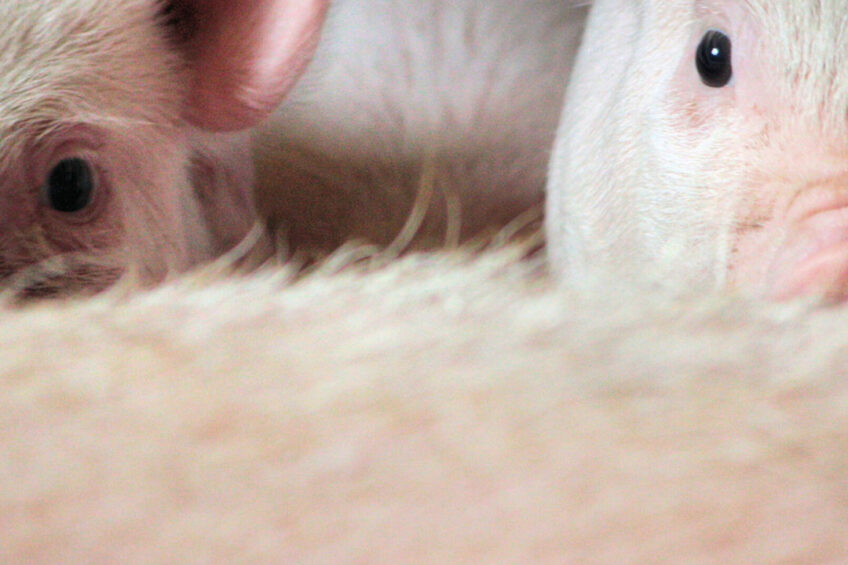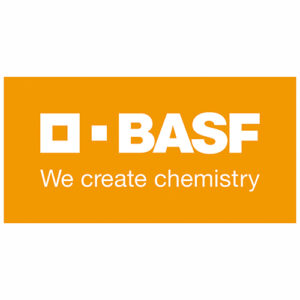NSP-enzymes as a nutritional strategy for lactating sows

Feeding sows during the lactation period is a particular challenge due to the high nutrient requirements. The NSP enzyme Natugrain TS from BASF can contribute to a better supply and energy intake of the sow and the piglets through a higher utilisation of the feed.
The continuous genetic improvement of sows has increased the litter size over the last years. At the same time, the nutritional challenges in sow feeding and piglet rearing are constantly increasing because of the large number of piglets per litter. As milk is usually the main or resp. only source of nutrients for piglets at the early stages of life, any increase in nutrient supply may potentially favour the development of the piglets and mitigate the nutritional challenges faced by these young animals.
Increasing the protein and fat content of sow milk
Whereas the protein contents of the milk tend to slightly increase after 14 d of lactation, the fat contents usually drop at the end of the lactation period. To investigate the influence of feeding sows with Natugrain TS, feeding trials were carried out in collaboration with the Hungarian University of Agriculture and Life Sciences, Kaposvár Campus, Hungary and the Institute of Agriculture and Food Technology (IRTA), Spain. As the results of these practical trials show, the addition of the NSP enzyme product to the sows diet can increase the protein content of the milk (d 14 and d 21), when the protein levels of the milk are low, In addition, the fat content of the milk can also be increased, especially at the end of the lactation period (d 21 and d 27), when the fat level of the milk is usually low, increasing the amount of available energy to the piglets during the lactation period (Figure 1).
Figure 1- Fat and protein contents of milk from sows fed diets with or without Natugrain TS (100 g/t). P<0.05>

(Trial conducted at Hungarian University of Agriculture and Life Sciences, Kaposvár Campus, Hungary)
As the nutritional status of the sows can affect the milk composition, the increased nutrient contents of the milk can be attributed to the improved digestibility of fat (18%), protein (2.1%) and gross energy (2.4%) as shown by sows fed diets containing Natugrain TS. This is also reflected in a significant increase in the apparent metabolizable energy (AME) available to the sow from the feed. (Figure 2).
Figure 2 – Digestibility of fat, protein and energy, and AME in sows fed diets with or without Natugrain TS (100 g/t). P<0.05>

(Trial conducted at Hungarian University of Agriculture and Life Sciences, Kaposvár Campus, Hungary)
Increasing the sow’s feed intake
The voluntary feed intake of the lactating sow is frequently inadequate low and a limiting factor to meet the high energy and nutrient requirements for the milk production to supply the piglets. The addition of the NSP enzyme product to the sow’s diet can increase the feed intake, primarily at the end of the lactation period.
During the lactation period, an excessive body mobilisation to produce milk is often observed, which may negatively affect the subsequent fertility and reproductive performance of the sow. By increasing the feed intake and improving the digestibility of energy and nutrients, the NSP enzyme product can attenuate bodyweight losses during this critical period of rearing a large number of piglets (Figure 3).
Figure 3 – Daily feed intake and bodyweight change (from farrowing to weaning) of lactating sows fed diets with or without Natugrain TS (100 g/t). P<0.05>

(Trial conducted at IRTA – Institute of Agriculture and Food Technology, Spain)
Natugrain TS is the feed enzyme product from BASF and contains the highly purified NSP-enzymes endo-1,4-beta-xylanase and endo-1,4-beta-glucanase. Due to well-balanced enzyme activities, the product is well suited to counteract the anti-nutritional effects from pentosans and beta-glucans that constitute a major part of Non Starch Polysaccharides (NSP) in commonly used feedstuffs. BASF supplies the NSP enzyme product in two formulations: as a heat-resistant powder for direct mixing with the feed prior to pelleting (Natugrain TS), and as a liquid for spraying onto the pellets after they have cooled after pelleting (Natugrain TS L). The liquid formulation is recommended if the pelleting temperature exceeds 85°C. The NSP enzyme product has proven itself in the feeding of pigs and poultry for years and is officially approved in many countries around the world.
References are available on request
 Beheer
Beheer

 WP Admin
WP Admin  Bewerk bericht
Bewerk bericht